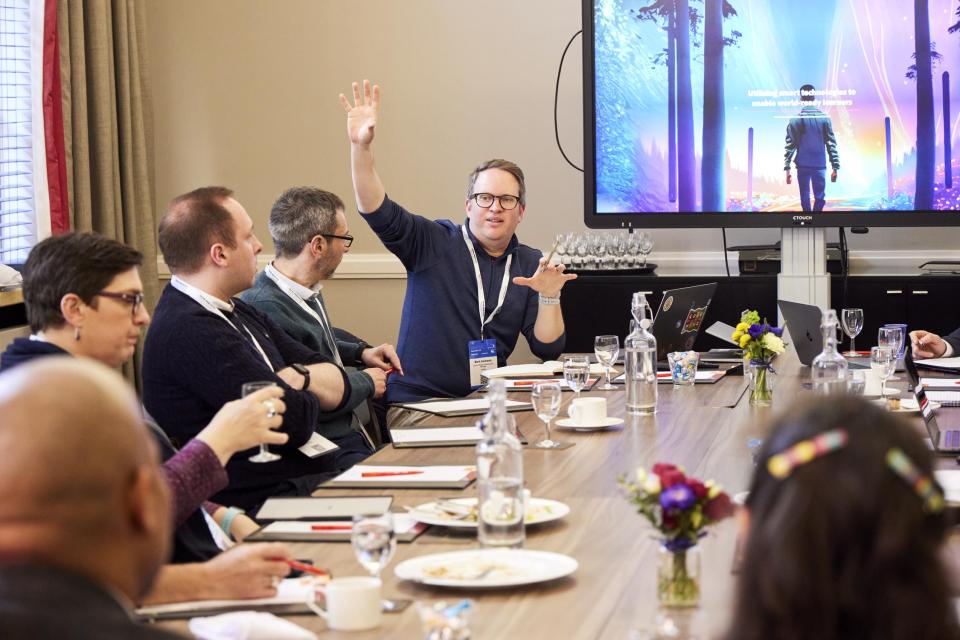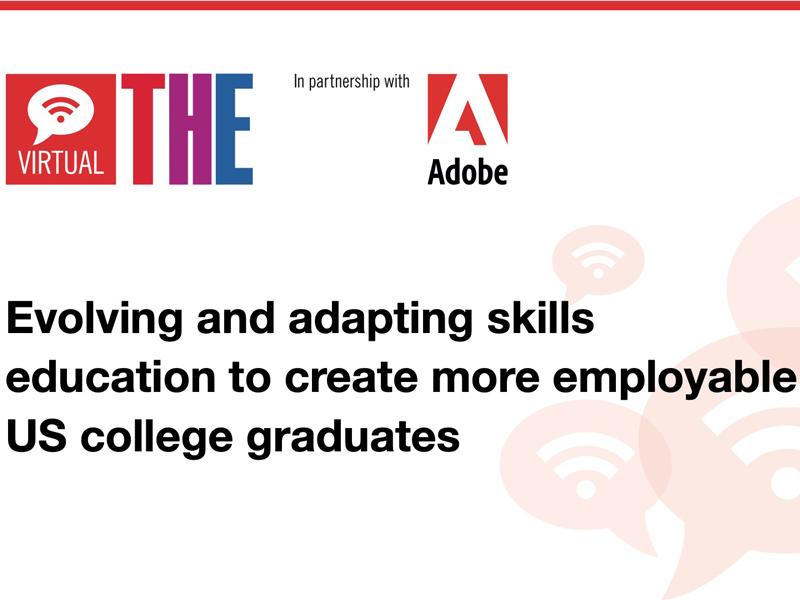As universities continue their digital transition at pace, a key priority for institutions will be to transform their pedagogy at scale while retaining the high standards expected by both teachers and students.
At a round table discussion held during THE Digital Universities UK 2023 in partnership with Adobe, representatives from universities across the UK met to share experiences and examples of good practice – as well as some of the barriers they faced in transitioning to digital-first learning.
Mark Andrews, senior strategic development manager for Adobe, began the session with a presentation detailing case studies of how students use Adobe platforms to support their learning and creativity. New digital tools were helping to create a “forest of opportunities” he said, which would enable students to flourish.
He noted that it could be challenging for institutions to know how best to incorporate smart technologies within the classroom, or what best practice looks like. “The key elements of creativity, critical thinking, digital skills and problem-solving…are all [featured] in our [digital] education strategies at the moment, but maybe we’re less clear on how to deliver these to students,” he said.
Research by Adobe, based on more than 800 interviews with academic and related staff members, found that nurturing soft skills is crucial for ensuring students graduate with entrepreneurial skills, even in the digital age. Supporting this was the need for “authentic assessment”, Andrews said.
Panellists discussed the topic of assessment in depth. Several participants said their institutions were already using artificial intelligence tools to help them track student engagement – for example, by generating feedback on the popularity of online quizzes and other learning resources based on the level of student interaction.
Panellists said that leveraging artificial intelligence to help course designers develop more authentic assessment techniques was the natural next step. One panellist highlighted that, for some academics, the barrier is not in using the technology itself but a “resistance to change”. Therefore, when introducing new or smart technologies into teaching and learning practices, “we have to take small steps with them, [explaining] why are we doing it like this”.
From working with European universities, Andrews reflected that UK institutions sometimes took the wrong approach to implementing digital assessment tools. Rather than being seen as a “faculty endeavour”, he said, it should be “the same as teaching: assessment is a team sport that requires skills – those of learning technologies, the academic skills, the library and information services skills – to put work together”.
Panellists cautioned against an overemphasis on assessment, which they said risks diminishing the enjoyment of learning. They noted that many students focus excessively on grades rather than the learning experience itself. Furthermore, overassessment may discourage the acceptance and value of failure, an important aspect of the learning process, one panellist said.
Andrews concluded that the challenges faced by universities were nuanced and varied between different institutions and demographics. “It takes time to change a culture, but we are seeing increased radical thought within institutions,” he said. “Partnerships coming in [to universities] and working on an open innovation type model to de-risk the transformation can really help.”
The panel:
- Chie Adachi, dean for digital education, Queen Mary University of London
- Mark Andrews, senior strategic development manager, Adobe
- Louise Banahene, director of educational engagement, University of Leeds
- Chris Buchanan, marketing manager, Adobe
- Debbie Ginsburg, senior learning technologist, Kingston University
- Layal Hakim, Co-director of education and student experience, University of Exeter
- Alistair Lawrence, head of branded content, Times Higher Education (chair)
- Norbert Pachler, pro-vice-provost of teaching, learning and digital education, University College London
- Sean Pryor, head of distance learning, University of Huddersfield
- Alison Purvis, associate dean of teaching and learning, Sheffield Hallam University
- Jonathan Shaw, director of educational innovation and technology, Coventry University
- Daniel Villalba Algas, learning technologist, University of Sheffield
Find out more about Adobe’s solutions for higher education.


comment